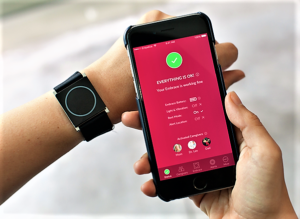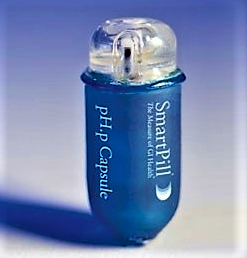- Blockchain for pharma: DHL, Imperial and Authentag embrace ledger tech (in-pharmatechnologist.com)
Three contract services firms have launched separate Blockchain-based initiatives, in a bid to increase pharmaceutical supply chain security...Blockchain – a digital ledger technology which records data in a secure, chronological way – has attracted attention in the pharmaceutical industry, as US and European serialisation deadlines approach...logistics firm DHL announced a collaboration with technology provider Accenture, to team serialization services with product verification, using a Blockchain ledger platform...The firms have created a ‘prototype simulation’ service, in order to track and trace pharmaceutical products throughout the entire supply chain...By sharing databases between multiple parties, Blockchain essentially removes the need for intermediaries who were previously required to act as trusted third parties to verify, record and coordinate transactions...Authentag announced its Blockchain-based Distributed Ledger Technology project...Our latest platforms will provide an open source architecture to allow members of the pharmaceutical community to develop their own solutions, improving the safety and security of pharmaceutical products...
- FDA approves first blood test to help diagnose concussions (statnews.com)
The Food and Drug Administration gave a green light...for the first time to a blood test that doctors can use to help rule out concussions...The Brain Trauma Indicator, marketed by Banyan Biomarkers Inc., measures the levels of two proteins — called UCH-L1 and GFAP — whose elevated presence suggests a certain type of brain damage normally only visible on a CT scan. The test takes three to four hours, and doctors could use it to determine which patients need a CT scan to confirm the damage and which patients can rest easy...FDA Commissioner Scott Gottlieb said that this product could save the health care system money by preventing unnecessary neuroimaging tests. Additionally, by sparing some patients CT scans, it would reduce the radiation exposure associated with those scans.
- FDA Clears the First Smart Watch for Use in Neurology (ptcommunity.com)
Wearable device identifies convulsive epileptic seizures and sends alerts to caregivers...The FDA has cleared the Embrace smart watch (Empatica, Inc.) for use by patients with epilepsy. Embrace uses advanced machine learning to monitor for the most dangerous kinds of seizures, known as “grand mal” or “generalized tonic-clonic” seizures, and sends an alert to summon caregivers’ help...The smart watch stands apart from any seizure detection system in that it measures multiple indicators of a seizure. Its unique property is its use of electrodermal activity, a signal used by stress researchers to quantify physiological changes related to sympathetic nervous system activity, also known as the "fight-or-flight" response. Embrace has been approved in Europe as a medical device for seizure monitoring and alert since April 2017.
- Online forums give investors an early warning of shady scientific findings (statnews.com)
Scientists around the globe nowadays regularly take to the internet to scrutinize research after it’s been published — including to run their own analyses of the data and spot mistakes or fraud...And as interest in this so-called post-publication peer review has swelled, one lawyer argues, biotech and pharma companies would do well to take note. If companies and their investors aren’t reading these sites, they may be the last to know when industry-funded research is called into question...The most prominent forum for these discussions is PubPeer, where anyone can create an anonymous account and comment on published research papers. Many of the posts on PubPeer point out instances of plagiarism and duplicated or manipulated images — all of which represent retractable offenses and serious scientific misconduct. But posters often note erroneous data, flawed methodology, or even just sloppy thinking that somehow escaped the scrutiny of peer reviewers before the article was published.
- The biggest innovators in health care, according to Fast Company (advisory.com)
Fast Company has released its 2018 edition of its "World's Most Innovative Companies" list, which recognizes more than 350 enterprises, including dozens involved in health care...The latest list covers 36 categories and recognizes the 10 most innovative companies in each category, with an overall list of the top 50 most innovative companies curated from the category-specific lists. To compile the lists, more than three dozen Fast Company "editors, reporters, and contributors surveyed thousands of companies" to "identify the most notable innovations of the year, and trace their impact on businesses, industries, and the larger culture."
- In the publication's health care-specific category, the 10 most innovative companies are:
CVS Health
23andMe
Color
Veritas Genetics
Helix
Maven Clinic
Qventus
Glooko
Emocha Mobile Health
Dosist
- In the biotech category, the 10 most innovative companies are:
Novartis
OneOme
GE Healthcare
Syapse
Sophia Genetics
Spark Therapeutics
Biogen
Synthego
WuXi NextCo
Ginkgo Bioworks
- In the publication's health care-specific category, the 10 most innovative companies are:
- FDA’s Scott Gottlieb wants to use funding boost to create a Center of Excellence on Digital Health (fiercehealthcare.com)
The Food and Drug Administration plans to use a proposed $400 million boost in federal funding to focus on a range of innovative approaches to speed the approval of new medical devices and create a new center that would support digital health oversight and address cybersecurity concerns...FDA Commissioner Scott Gottlieb, announced...That would include specific carve-outs planned for a new Center of Excellence on Digital Health and furthering the agency’s ability to use EHR data to evaluate medical devices...The Center for Excellence on Digital Health would oversee a revamped regulatory paradigm created through the FDA’s new software precertification program launched with nine companies in September. But the center would also create a cybersecurity unit to “enhance its ability to coordinate device-specific responses to cybersecurity vulnerabilities and incidents.” Over the past several years, medical device cybersecurity has emerged as particular concern for industry and regulators...Gottlieb also highlighted an expanded effort to integrate real world data into pre-market and post-market reviews of drugs and medical devices. The additional funding would allow FDA to develop analytic tools and pull real-time data out of EHRs associated with at least 10 million individuals across a range of healthcare settings...“Toward these ends, an expanded use of natural language processing for the assessment of information submitted to the agency would be developed in an effort to markedly speed recognition and remediation of emerging safety concerns,” he said. “The effort would cover a broad range of medical products, including drugs, biologics and medical devices.”
- Fair Pharma? Intermountain’s New Generic Drug Company (catalyst.nejm.org)
Leemore Dafny, PhD, interviews Marc Harrison, MD, President and Chief Executive Officer of Intermountain Healthcare.
Dafny: We’re here to talk about this new initiative that you are spearheading to create a new generic manufacturing company for pharmaceuticals, and I want to start by saying that we’ve seen a lot of vertical integration in health care, typically different health care providers merging, or providers and health plans. But integration of providers into pharmaceutical manufacturing — setting aside a little compounding — is pretty unprecedented. So I just want to start our conversation by asking, why are you doing it?
Harrison: Well, I guess I’d say necessity is the mother of invention, right? This is not an ambition that Intermountain, nor I suspect the other systems, have had, but as organizations that really try and put our patients at the center of everything we do, some of the issues we’re having around shortages and then secondarily around pricing — they’ve changed the way we’ve thought about things, and so I guess the very few folks in the generic drug industry who are creating these issues, we owe them some thanks because it’s caused us to think creatively.
- FDA to Launch New Pilot Program for Orphan Designation Requests (raps.org)
With more than 700 orphan designation requests last year, the Food and Drug Administration...announced a new pilot program to make the request process more efficient...The pilot will include a new form intended to make the submission process easier for sponsors to complete orphan designation requests, and to make the process more efficient for FDA...FDA also released an on-line tutorial to guide sponsors through the submission process and Gottlieb noted there is a new inter-center consult process to streamline and standardize communications...In addition to the pilot, FDA vowed to eliminate the orphan drug designation backlog, and is planning a public meeting to discuss the scientific and regulatory issues related to cancer treatments that target a tumor’s genetic features rather than its location in the body...“We’ll also consider the appropriate application of orphan incentives to this new paradigm of drug development, and how we apply designations to these indications,”...
- Nordic project takes ‘manufacturing-on-demand’ approach to future drugs (in-pharmatechnologist.com)
Nordic Universities will investigate 3D printing, electrospraying, and microfluidics in an industry supported collaboration aimed at revolutionising production in an age of personalised medicine.
The collaboration, known as Nordic POP (Patient-Oriented Products), will use 35m DKK ($6m) of funding from NordForsk...to create flexible and translational approaches to personalised medicine manufacturing…Jukka Rantanen...University of Copenhagen...said that new patient-oriented and personalised drug products require a “totally new mindset” in the drug development process...“The project team is aiming to create new innovative drug products, where the dose, release mechanism, and size/shape of the product could be easily personalised based on the patient needs...“Instead of one-size-fits-all medication, the potential of new patient oriented products considering gender, age, lifestyle, genetic profile, metabolic capacity, and microbiota will be explored,”... - The ‘smart pill’ market could be worth $3B by 2025 – meet the key players (drugdeliverybusiness.com)
The “smart pill” market is expected to nearly quadruple in value to $3 billion by 2025...Driving this growth is an increasing demand for minimally-invasive procedures, as well as better patient monitoring capabilities...
- Medtronic‘s SmartPill...capsule measures pressure, acidity, temperature and transit time as it passes through a person’s gastrointestinal tract...
- CapsoVision...has created...CapsoCam Plus small bowel capsule endoscope system...is designed to give a 360-degree panoramic lateral image of the small bowel to help clinicians spot small bowel abnormalities...
- Olympus Corp...Endocapsule EC-10 system is designed to help doctors visualize the small bowel…and features a 160-degree wide-angle field of view...
- Proteus Digital Health...a pill that can monitor patient compliance...The system helps patients track the ingestion of their medication by sending a message from the pill’s sensor to a wearable patch, which then transmits the data to a mobile app.
- EtectRx...ID-Cap system includes a capsule embedded with a sensor that sends a signal to a battery-powered reader worn around the user’s neck once the pill reaches the stomach...then sends that data to a smartphone via Bluetooth to reach the patient and, ultimately, the physician.










